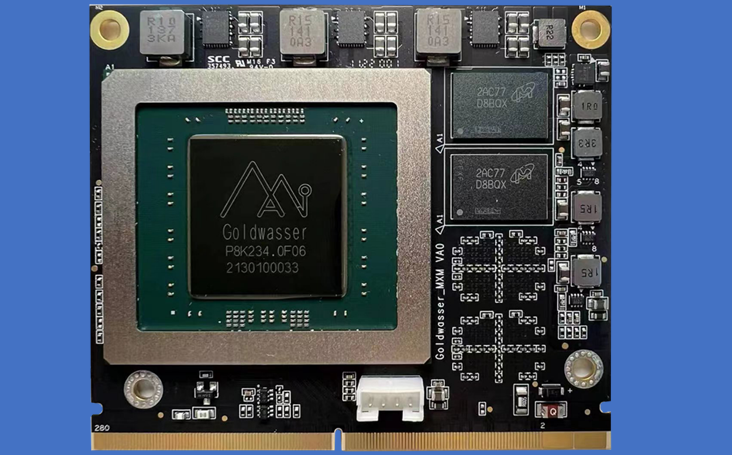The GPU is in a position to compete with Nvidia while potentially utilising Nvidia’s CUDA advantage because it has a computing architecture that is compatible with CUDA/OpenCL programming models.

A Shanghai-based GPU developer, Denglin Technology, received funding from the China Internet Investment Fund. The GPU is in a position to compete with Nvidia while potentially utilising Nvidia’s CUDA advantage because it has a computing architecture that is compatible with CUDA/OpenCL programming models.
The investment funds, according to Jon Peddie Research, will hasten Denglin’s full range of product research and development as well as the mass production and commercialization of its next-generation Goldwasser GPUs.
The product line from Denglin, which includes its flagship Goldwasser, is primarily intended for use in applications involving artificial intelligence. The business had previously claimed that the GPU could be used for gaming. According to the company, Goldwasser is the first enterprise Chinese GPU to successfully run complex commercial applications.
Denglin’s GPU+ architecture is incorporated into the Goldwasser GPU, enabling software-defined on-chip heterogeneous computing technology. According to JPR, it asserts direct compatibility with programming paradigms like Nvidia’s CUDA.
Therefore, funding from the government could make use of the compute frameworks offered by rival Nvidia. Denglin undoubtedly has such ambitions, though it is still unclear whether it will produce silicon that is competitive enough to challenge Nvidia’s hegemony in the AI GPU market.
Tsinghua University alumni Li Jianwen and Wang Ping founded Denglin Technology, and Yang Jian, the company’s vice president of global operations, previously held a comparable position in Huawei’s global supply chain.
With extensive expertise in GPU R&D and commercialization, Denglin runs seven R&D facilities across a number of locations, including Silicon Valley, Chengdu, and Hangzhou. According to JPR, the company is one of 13 GPU developers in China.
The global GPU market is anticipated to grow from an estimated $33.47 billion in 2021 to $477.37 billion by 2030, representing a compound annual growth rate of 34.4% from 2021 to 2030, according to data from Verified Market Research (in India), which JPR cited.
The demand from gamers, esports fans, and professionals using software is what is causing this increase the most. AI is already having a significant impact on this market as this is happening.
Goldwasser is yet another participant in the crowded Chinese GPU startup scene, where companies like Biren and others have recently made headlines. This new company, however, appears prepared to make a more noticeable impact right away thanks to alleged CUDA compatibility and fresh funding from the Chinese government.